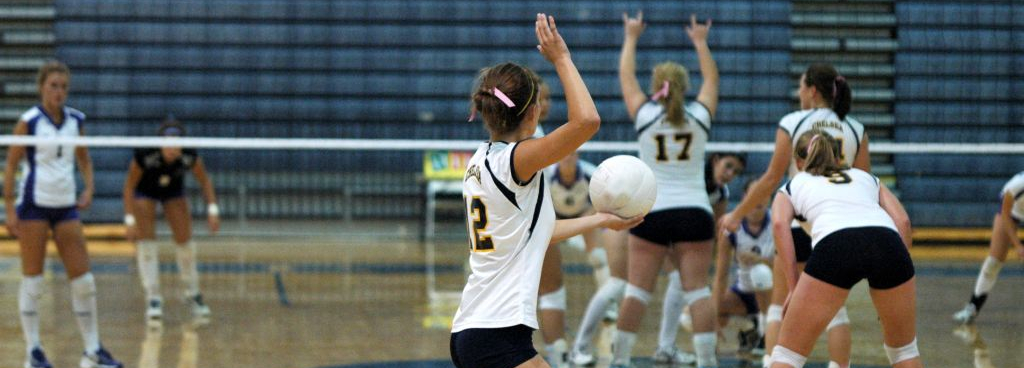Many high school athletes dream of continuing to play their sport at the collegiate level, but it’s important for students to understand the basics of the athletic recruiting process before deciding if it’s an avenue they want to pursue.
At IvyWise, our admissions counselors are experts at every component of the college admissions process, including athletic recruitment. Experts who have led students through their athletic recruitment process — both from the admissions office and the counseling office — have created this step-by-step plan for student athletes interested in pursuing the athletic recruitment process.
1. Fill Out the Athletic Prospective Questionnaire
These forms can be found on each individual university’s athletic page for Division I, II & III as well as NAIA colleges and are helpful in order to gain consideration to be a student athlete at that particular institution. Prospective athletes can fill these out as early as the beginning of freshman year of high school.
2. Register to Be Recruited
If seeking to be a Division I or II recruit, then you must register with the NCAA Athletic Eligibility Center in order to play and be recruited for a college sport.
3. Ask for Help
Specifically, ask for guidance from a prep club coach for your individual sport. Club coaches can make a phone call or send an email on you behalf to a particular college where they have established a relationship with the coaching staff. If they feel you are a good athletic fit for another program, they certainly can still reach out to programs they are unfamiliar with as well and show support for your athletic talent.
4. Develop Your Critical Team Role
Coaches are not just looking for your athletic talent but the role that you will play on their team. Encourage your coach to also mention your leadership, your attitude at practice, initiative with the teammates during the pandemic or interaction with your teammates on the sidelines or in a competition scenario with others.
5. Create an Online Profile
Especially now when you likely cannot be seen in person by coaches, send them a highlight video between 3-5 minutes with clips from several games or practices. Make sure your best clips first in the highlight video. There are also websites where you can set up your own athletic recruitment profiles like, NCSA and BeRecruited. However, one of easiest ways to showcase your talents online is through your own Twitter, YouTube, Instagram, etc. account solely for your athletic recruitment that you can share with coaches. This is also helpful for coaches to follow your athletic career, development, and success.
6. Explore Summer Showcases
If possible, attend summer camps or showcases where college coaches will be in attendance. Reach out by email to coaches well ahead of time to let them know of your interest in their program and that you will be attending X showcase on X date.
7. Be Proactive and Stay Organized
Create a spreadsheet for each school’s program, list the athletic conference, their season record, coaching staff’s names, academic requirements, and dates you sent and received correspondence. Share your highlight video and academic profile with university sports programs directly and ask coaches detailed questions related to your recruitment. For example, inquire if they have the need for your specific position. “I am a setter for volleyball. Do you anticipate that you will be actively seeking to recruit a setter for my class year?” Sometimes coaches only have so many “slots” to advocate for with the admissions office and they may not be looking for certain positions from year to year.
8. Know Communication Rules
Neither coaches or athletes can initiate phone conversations until June 15th after a recruited athlete’s sophomore year. However, coaches still need to start to develop their recruiting class prior to an athlete’s sophomore year so it is important to communicate with them through other avenues like attending online events, creating an online profile and sending updates for them to review.
9. Understand Testing Expectations
In January 2023, the NCAA removed any standardized testing requirements for student athletes. Since COVID-19, the number of schools going test-optional or test-blind is constantly in flux. However, this does not mean that you should disregard test prep entirely. Your desired school may still require a score and a strong score can still set you apart — whether you are being recruited or not.
10. Frequently Check the NCAA Website
Regularly check the NCAA website for updates on recruitment for your individual sport and changes. Each sport varies on their guidelines so it is imperative you stay current on changes to their policies.
11. Create Two College Lists
Create one list where your sport is part of your college experience and another list that is just based on your academic interest in that university, independent of any athletic experience. You may not end up playing a sport in college or an injury could end your athletic career so it’s important to make two concurrent lists.
Regardless of your specific athletic ambitions, it’s important to do your research and understand the ins-and-outs of the college athletic recruitment process so that you can make the most of it. Our IvyWise counselors have experience working with student athletes with a range of interests and objectives and frequently work with applicants to guide them throughout the recruitment process. If you’re looking for expert college admissions guidance while also exploring athletic recruitment, contact us today.




